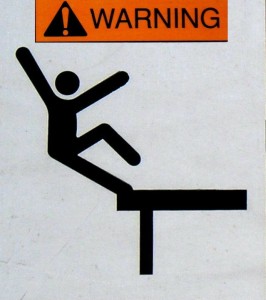Low Back Pain: How To Tell When It’s More Than Just a Back Issue
 There has often been a belief that low back pain can often be a warning signal for more serious health issues, such as cancer or autoimmune diseases. However, recent studies have shown that low back pain rarely signals these issues. In the studies, less than one percent of participants with low back pain had any spinal malignancies detected.
There has often been a belief that low back pain can often be a warning signal for more serious health issues, such as cancer or autoimmune diseases. However, recent studies have shown that low back pain rarely signals these issues. In the studies, less than one percent of participants with low back pain had any spinal malignancies detected.
Despite such a low percentage, this is still a serious issue that should not be overlooked. So what are some signs to look for that actually could signal your back pain may be a more serious issue?
- Numbness around the groin. – Numbness throughout the pelvic region can often indicate a serious spinal cord injury. This type of complication requires medical attention and a person should not hesitate when experiencing such symptoms.
- Extended length of pain. – While many people suffer from chronic back pain, it often comes and goes and the pain lingers for various amount of time. However, if low back pain sets in and sticks around for any amount of time upwards of six weeks, this can signify a more serious complication.
- Pain is combined with other red flags. – When back pain exists by itself, it is hard to determine whether or not it is related to another issue. When it exists along side other red flags, the chances of it being part of a bigger issue becomes much more prevalent. Some of these additional red flags include a family history of cancer or autoimmune diseases, unusual or rapid weight loss, numbness that spreads equally to both legs, or a general/consistent feeling of being sick.

Categories
Archives
Contact Dr. Mudit Sharma
Phone: (571) 921-4877
Toll Free: (855) 774-6334
Monday – Thursday: 8am – 4pm
Friday: 8am – 2pm
Fredericksburg
4604 Spotsylvania Parkway, Suite 300 Fredericksburg, VA 22408
Manassas
8650 Sudley Road, Suite 315
Manassas, VA 20110-4418
